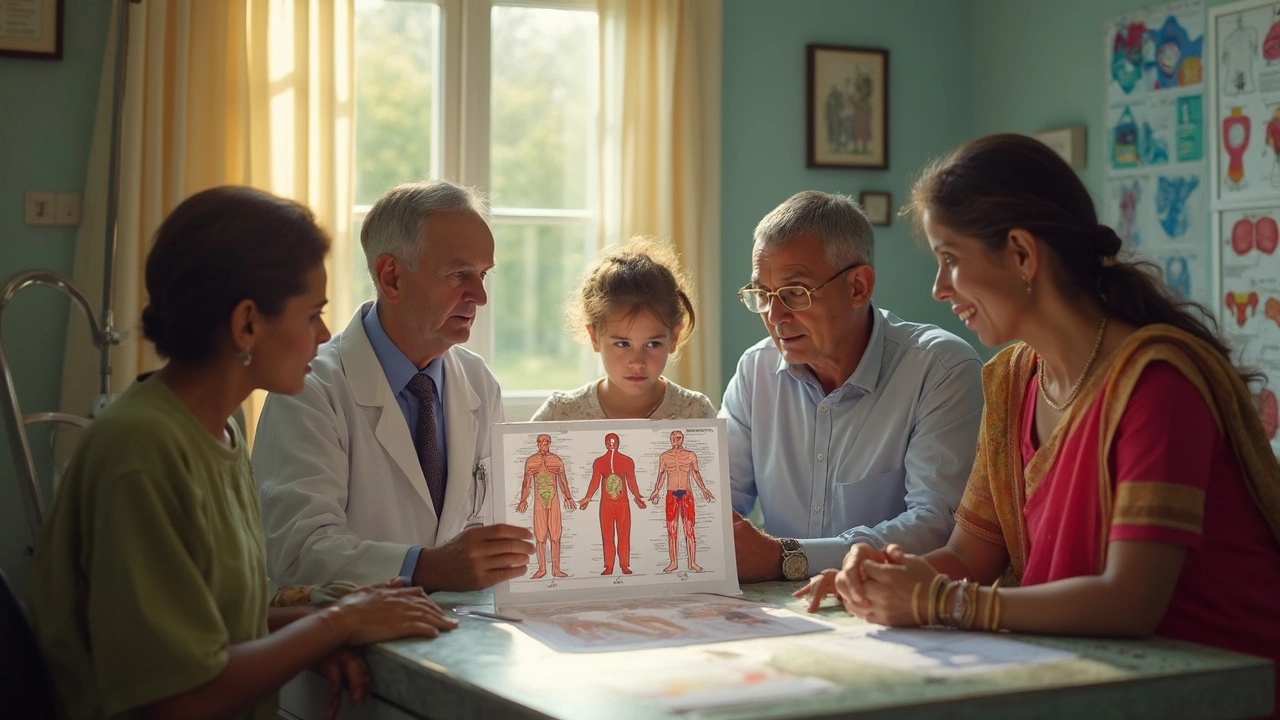Cancer Stages: What They Mean and How They Affect Treatment
When doctors talk about cancer stages, a system used to describe how far cancer has spread in the body. Also known as tumor staging, it helps guide treatment, predict outcomes, and compare cases across patients. It’s not just a number—it’s a map of what’s happening inside your body.
There are four main stages, from Stage I to Stage IV. Stage I means the cancer is small and hasn’t spread beyond where it started. Stage II and III mean it’s grown larger or reached nearby tissues or lymph nodes. Stage IV means it’s spread to distant organs like the liver, lungs, or bones. This isn’t just medical jargon—knowing the stage tells you how urgent treatment needs to be and what options are still open. For example, early-stage cancers often respond well to surgery or radiation. Late-stage cancers may need a mix of chemo, targeted drugs, or immunotherapy. The difference between Stage I and Stage IV isn’t just about size—it’s about survival chances, treatment intensity, and quality of life.
Staging isn’t guesswork. Doctors use scans like CT, MRI, or PET, plus biopsies and blood tests to build the full picture. Some cancers, like breast or colon, use the TNM system: Tumor size, Node involvement, Metastasis. Others, like lymphoma, have their own rules. What matters is that staging is standardized. That’s why two doctors in different cities will agree on the stage of your cancer. And that’s why catching it early is so powerful. The cancer stages system exists because early detection saves lives. A Stage I lung cancer has a much higher five-year survival rate than Stage IV. The same goes for colorectal, cervical, and skin cancers. That’s why knowing the warning signs—like unexplained weight loss, persistent cough, or changes in bowel habits—isn’t just helpful, it’s critical.
But staging isn’t the whole story. Your age, overall health, cancer type, and even genetic markers play a role too. Two people with Stage III breast cancer might have very different treatment paths based on hormone receptors or BRCA status. That’s why personalized medicine is growing. Still, staging remains the starting point. It’s the foundation every doctor builds on. Whether you’re newly diagnosed, supporting someone who is, or just trying to understand your own body, knowing what cancer stages mean gives you power. You can ask better questions. You can spot inconsistencies. You can push for the right tests.
Below, you’ll find real, practical articles that break down what cancer stages mean in practice—from early warning signs you shouldn’t ignore, to why pancreatic cancer is so hard to treat, to whether any cancer can truly be cured. These aren’t theory pieces. They’re grounded in what patients actually face, what doctors see, and what the data shows. No fluff. Just clarity.
Stage 5 Cancer: Myth or Reality? Understanding Cancer Staging Explained
Is 'stage 5 cancer' real or just a myth? Get clear, helpful facts on cancer staging, what advanced cancer means, and what to expect at later stages.
At What Point Is Cancer Not Curable? Understanding the Limits of Cancer Treatment
Ever wondered at which point cancer crosses that line where it can't be cured? This article breaks down how doctors decide if cancer is still curable, the impact of cancer stage and spread, and how new treatments can change the game. We’ll also clear up common myths and offer real-life tips for dealing with tough news. If you or someone you care about is facing cancer, this guide offers clarity without sugarcoating the facts.
Stage 4 vs Stage 3: What’s Worse When It Comes to Cancer?
Stage 3 and stage 4 cancers aren’t just numbers. They signal how much cancer has spread and what that means for treatment and life ahead. This article slices through the medical jargon and talks honestly about what makes stage 4 generally tougher to treat than stage 3. Understand what the stages mean, what changes as cancer moves from one to the next, and why stage 4 often comes with bigger challenges. Find tips on what to ask your doctor and ways to cope, wherever you or a loved one might be in the journey.







